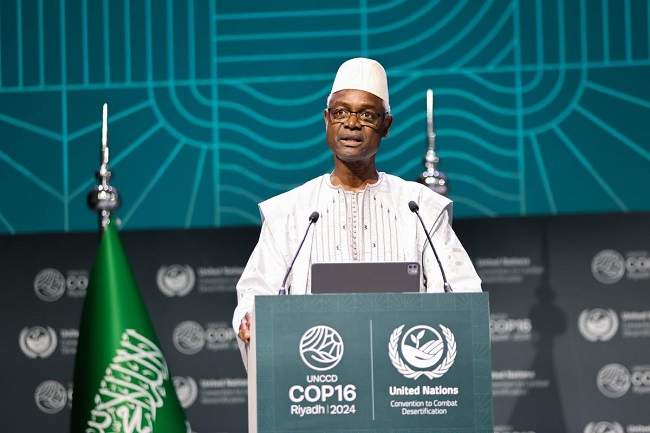The Republic of Colombia will host the 2025 global observance of Desertification and Drought Day on June 17, highlighting the country’s commitment to tackling land degradation through nature-based solutions.

Taking place in Bogotá, the event will draw global attention to the urgent need to scale up land restoration as a catalyst for sustainability, peace, and inclusive development. The global observance will be part of the Global Land Forum, hosted by the Government of Colombia.
Under the theme “Restore the Land. Unlock the Opportunities,” the 2025 observance will emphasise the critical role of healthy land in providing food, water, jobs, and security. Colombia’s decision to host the global event reflects its determination to restore land at scale and ensure that restoration efforts directly improve livelihoods and ecosystems.
Ibrahim Thiaw, Executive Secretary of the United Nations Convention to Combat Desertification (UNCCD), said: “Land degradation is more than just an environmental issue – it is a direct threat to our health, food and water security, and the stability of societies. When we lose healthy land, we weaken nutrition, increase the risk of disease, and expose communities to climate and economic shocks. I thank the Republic of Colombia for its invitation to host this year’s observance, which will shine a light on how restoring land can protect nature, improve well-being, and build a more resilient future for all.”
Highlighting the urgent need for sustainable land use and the vital connection between soil and peace, Martha Viviana Carvajalino Villegas, Minister of Agriculture and Rural Development of Colombia, stated: “The protection of agricultural soils and land is an urgent imperative in the face of interconnected crises threatening our survival: biodiversity loss, ecosystem degradation, hunger, poverty, and displacement.
“In response, we commemorate Desertification and Drought Day to reaffirm that protecting the soil is protecting life. This struggle rests on three pillars: soil conservation and restoration, sustainable, fair and resilient agri-food systems, and improved quality of life in rural and urban areas. Without fertile soil, there is no food; without food, there is no peace.”
“We implement comprehensive policies: equitable land redistribution, restitution of rights to historically marginalised communities, and guarantees for sustainable resource management. In this way, we transform the soil into a shield against hunger, a bridge towards reconciliation, and a legacy of dignity for future generations. Land is not just a resource: it is the foundation of peace,” she added.
Faced with the serious challenge of land degradation – affecting nearly 30 per cent of its territory, or 34.39 million hectares – Colombia is stepping up with bold action. By 2030, it aims to restore 100,000 hectares of degraded land, conserve 22,000 hectares of dry forest, expand sustainable agroforestry systems, and support rural communities through targeted restoration and planning initiatives across priority regions. In hosting the observance, the country is also opening a platform for youth, Indigenous peoples, farmers, scientists and civil society to share local solutions that contribute to global goals.
Colombia’s efforts reflect a broader global imperative: restoring land is essential to meeting today’s urgent challenges – from climate change and biodiversity loss to food insecurity and forced migration. Despite increasing momentum, including at UNCCD COP16, the true value of healthy land remains underestimated.
Land degradation, drought and desertification cost the global economy an estimated $878 billion each year. Meanwhile, restoring over one billion hectares of degraded land could generate up to $1.8 trillion annually, with each dollar invested returning between $7-$30 in economic benefits. Yet the pace and scale of restoration remain far below what is needed.
The economic case for restoration is clear,” Thiaw added. “Each dollar invested can yield up to thirty in returns. But beyond the numbers, restoring land is about protecting the dignity of communities, ensuring long-term access to food and water, and building a more stable and equitable world. Colombia’s leadership underscores what is possible when restoration becomes a national priority.”
Officially declared by the United Nations General Assembly in 1994 (A/RES/49/115), Desertification and Drought Day, marked annually on June 17, is a unique occasion to highlight practical solutions to combating desertification, land degradation and drought.
In 2025, Colombia will welcome global leaders, experts, youth, and representatives from across society for the official celebration in Bogotá. Countries around the world are mobilising to mark Desertification and Drought Day with an array of educational, cultural and sporting activities.
